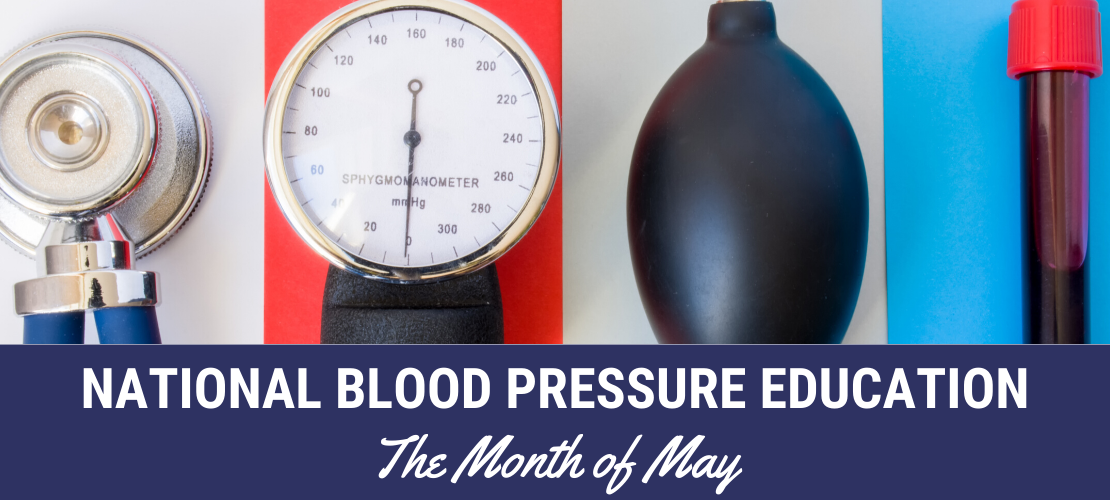- May 1, 2020
- Posted by: admin
- Category: News

In the United States, nearly 68 million people have high blood pressure, which is also called hypertension. (Source: CDC)
Most of the time, high blood pressure (HBP, or hypertension) has no obvious symptoms to indicate that something is wrong. The best ways to protect yourself are being aware of the risks and making changes that matter. This silent killer is the reason the Centers for Disease Control and Prevention created National Blood Pressure Education Month – a month to increase awareness of this silent killer and encourage prevention.
You may have high blood pressure and not even know it – that’s why it is important to check your blood pressure regularly. This common condition increases the risk for heart disease and stroke. By regularly checking your numbers, you can identify any changes and discuss them with your health provider.
Impact of High Blood Pressure
- Increased risk for cardiovascular disease and congestive heart failure
- Increased risk for stroke
- Increased risk for kidney disease
- There were more than 46 million visits to doctor’s offices for hypertension in 2007 (Source: CDC)
Managing High Blood Pressure
High blood pressure can be managed in a number of ways, including medication and lifestyle changes. Recommendations include:
- Regular blood pressure checks to monitor any changes
- Quit smoking
- Regular exercise – one brisk, 10-minute walk, three times a day, five days a week
- Maintaining a healthy body weight
- If you are a drinker, doing so in moderation (two drinks a day for men, one drink a day for women)
Even implementing small changes over time can make a big difference.
If you have a history of hypertension and heart disease in your family, give our office a call at 251-433-4700 to set up an appointment with one of our highly trained physicians. Our doctors can work with you to establish your baseline numbers and develop a plan to get your blood pressure under control.

